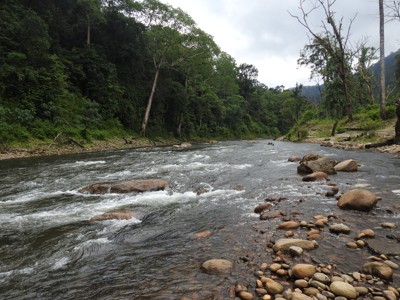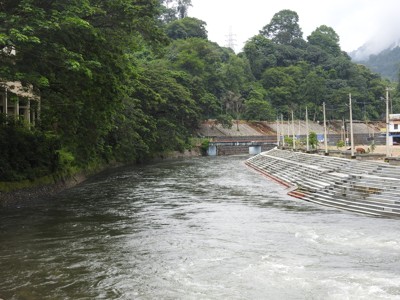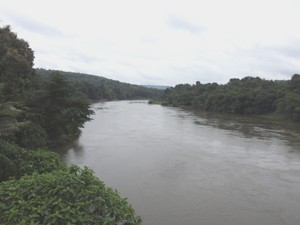Pampa river is known as the ‘Dakshina Bhageerathi’ and is the third-longest river in Kerala after Periyar, spanning about 176 km in total length. The exquisite attribute of the Pampa river is its unique topographical blending; to be precise, the River emanates from Pulachimala on Peerumedu upper plateau of Idukki district and flows through Pathanamthitta district’s midlands, enriches the lowlands of Alappuzha-Kuttanadu, and eventually drains into Vembanad lake.
The Pampa river is renowned, mainly for its association with the Sabarimala Temple pilgrimage. Hence, this River is considered the ‘Sacred Pampa’. Millions of devotees carry out the ultimate rituals ‘The Holy Dip’ with the act of disposing of their clothes in the flowing River tainting the River significantly. The Pampa Triveni region on the foothills of Sabarimala is the most sensitive hotspot in the aspect. Other rituals, customs, festivals, and traditional ceremonies are associated with the Pampa river basin, like Maramon convention, Aranmula Snake boat race, and conventional agricultural practices. Due to erroneous agricultural practices, excess pesticides, herbicides, fertilizer effluents are discharged into the River, resulting in heavy metal accumulation, eutrophication, algal blooms. There is a substantial degree of sand mining from the Riverbanks of Pampa like Pavukara, Cherukolpuzha, etc.
Even though different institutions and researchers try to tackle management practices, and there are numerous initiatives regarding river health, the optimal health of the Pampa River and river ecosystem still erodes. Environmentalists and other veterans warned of the impending devastating phase of the Pampa River as it has perceivably started showing the symptoms. The project intends to protect, preserve and perpetuate comprehensive river health through intense training & equipping focused individuals.



